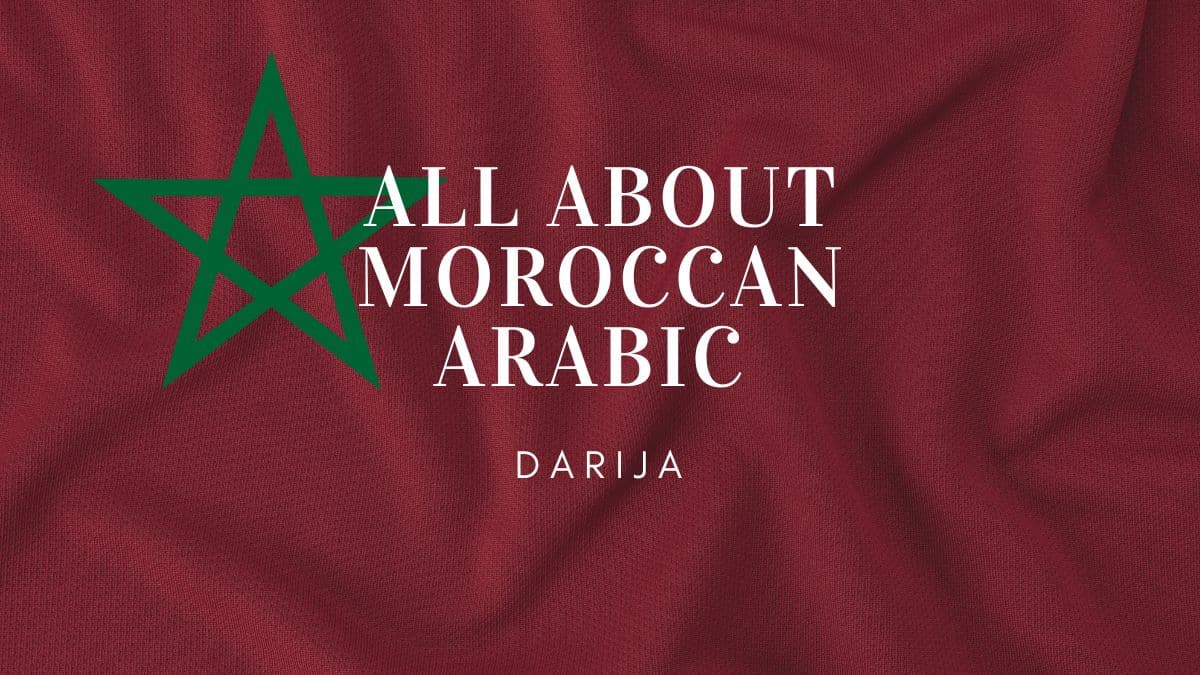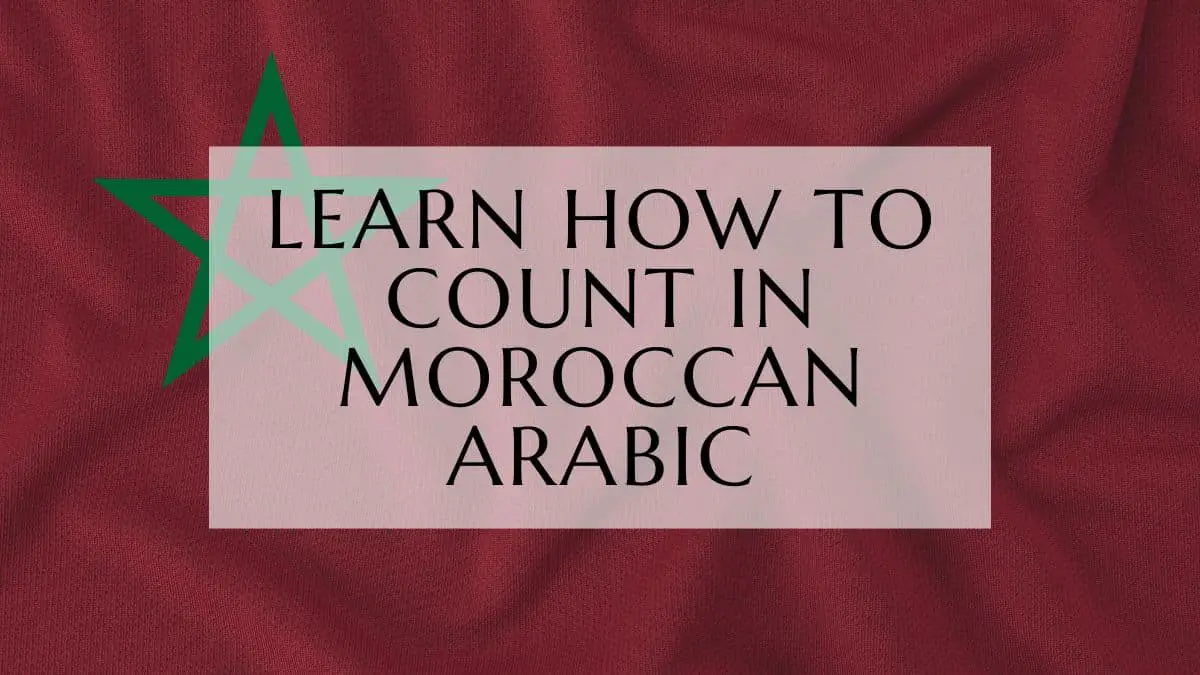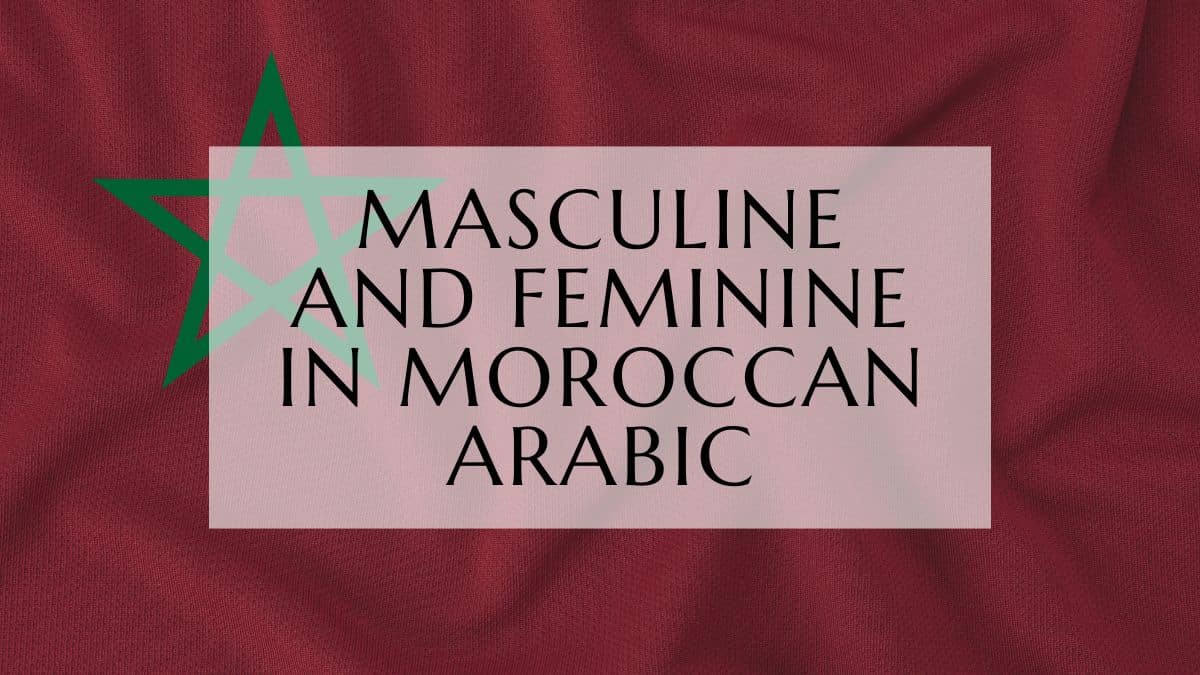In this lesson, we will learn how to greet people and respond to greetings in Moroccan Arabic (with audio), and different ways of greetings throughout the day. (Study guide at the end).
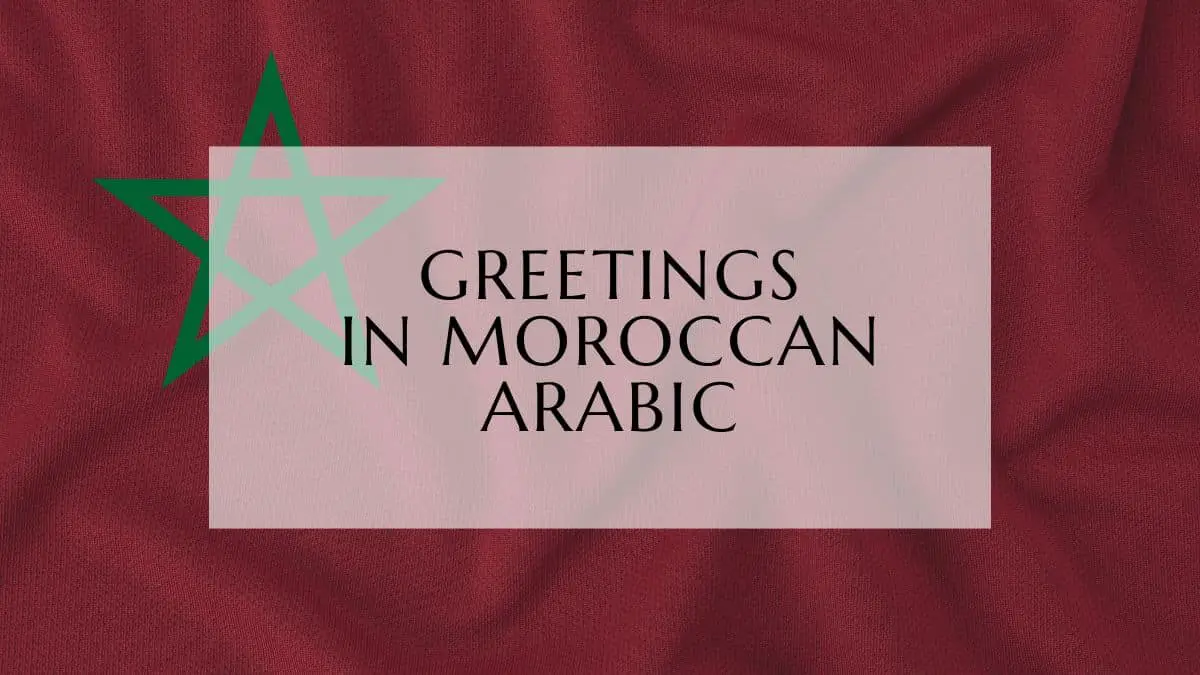
You probably know “assalam aleykum” and “kidayer?”, but Moroccan Arabic speakers don’t use only those, there are different greetings used in different situations throughout the day, learning them will expand your vocabulary and make you sound more natural while speaking Darija.
Note: you can practice what you’ve learned here, and learn how to pronounce each of the words in our Memrise course here, don’t know how to use the platform or sign up? we’ve got you covered in this easy-to-follow tutorial here.
Greetings in Moroccan Arabic
| English | Transcribed Moroccan Arabic | Using Arabic Alphabet |
| Hi | Ahlan | أهلا |
| Welcome | Merhba | مرحبا |
| Peace be upon you | Assalam aleykum (can be shortened to salam) | السلام عليكم |
| Peace be upon you, too | Wa aleykum ssalam | وعليكم السلام |
| Good morning | Sbah lkhir / Sbah nur (nur=light) | صباح الخير / صباح النور |
| Good evening | Msa lkhir / Msa nur | مسا الخير/ مسا النور |
| Good night (before sleep) | Tesbah ala khir (addressing a male) / Tsebhi ala khir (addressing a female) | تصبح على خير / تصبحي على خير |
| How are you doing? | Kidayr? (Addressing a male) Kidayra? (Addressing a female) | كيداير؟ / كيدايرا؟ |
| Are you alright? | Labas? / Labas 3lik? | لباس؟ / لباس عليك؟ |
| Are you good? | Rak mzyan? (adressing a male) / Raki mzyana? (adressing a female) | راك مزيان؟ / راكي مزيانة؟ |
| Are you good? | Rak bikhir? (addresing a male) / Raki bikhir? (addressing a female) | راك بيخير؟ / راكي بيخير؟ |
| I am fine, thank God. | Labas hamdulillah | لاباس الحمد لله |
| And you? | W nta? (Addressing a male) W nti? (Addressing a female) | و نتا؟ / و نتي؟ |
| How is the family? | Kidayra l3a2ila? | كيدايرا العائلة؟ |
| The kids are good? | Lwlidat bikhir? | الوليدات بيخير؟ |
| Everything is fine. | Kolshi bikhir/ kolshi mzyan | كلشي بِخير / كلشي مزيان |
| Thank God | Hamdulillah | الحمد لله |
| Thank you | Shukran | شكرا |
| May God protect you. | Allah ihafdek / Rabbi ikhallik (the Moroccan way of saying “thank you”) | الله يحفظك / ربي يخليك |
| Have a blessed day. | Nharek mbruk | نهارك مبروك |
| God willing. | Inshallah | إن شاء الله |
| God bless you. | Baraka Allaho fik | بارك الله فيك |
| What’s up? | Ash kat3awd? (Addressing a male) Ash kat3awdi? (Addressing a female) | أش كتعاود؟ أش كتعاودي؟ |
| Long time no see/ it’s been a while | Mudda hadi | مدة هادي |
| How’s your day? | Kighadi nharek? | كيغادي نهارك؟ |
| Good to see you | 3ash men shafek (literally: alive the one who see you) | عاش من شافك |
| How are things going? | Kighadya l omor? | كيغاديا الأمور |
| Any news? | Shi jadid? | شي جديد؟ |
| We will meet tomorrow | Netlaqaw ghedda | نتلاقاو غدا |
| Bye. | Beslama | بسلامة |
| See you tomorrow. | Netshawfo ghedda | نتشاوفو غدا |
Note that in both cases, Moroccans will still say “hamdulillah” if asked

Happy learning!
Moroccan Arabic Greetings Study Guide
Quiz
- What are two ways to say “good morning” in Moroccan Arabic?
- How do you ask someone “How are you?” in Moroccan Arabic, differentiating between addressing a male and a female?
- Provide the Moroccan Arabic phrases for “good evening” and “good night” (when addressing a female).
- What is a common response to greetings like “How are you?” that includes an expression of gratitude?
- Translate the following phrases into English: “Lwlidat bikhir?” and “Kolshi mzyan.”
- How do you express “thank you” in Moroccan Arabic, beyond the standard “shukran”?
- What are two ways to say “goodbye” in Moroccan Arabic?
- Translate these phrases into English: “Nharek mbruk” and “Baraka Allaho fik.”
- What is the Moroccan Arabic phrase for “long time no see”?
- How would you ask someone “What’s up?” in a casual way in Moroccan Arabic (both male and female forms)?
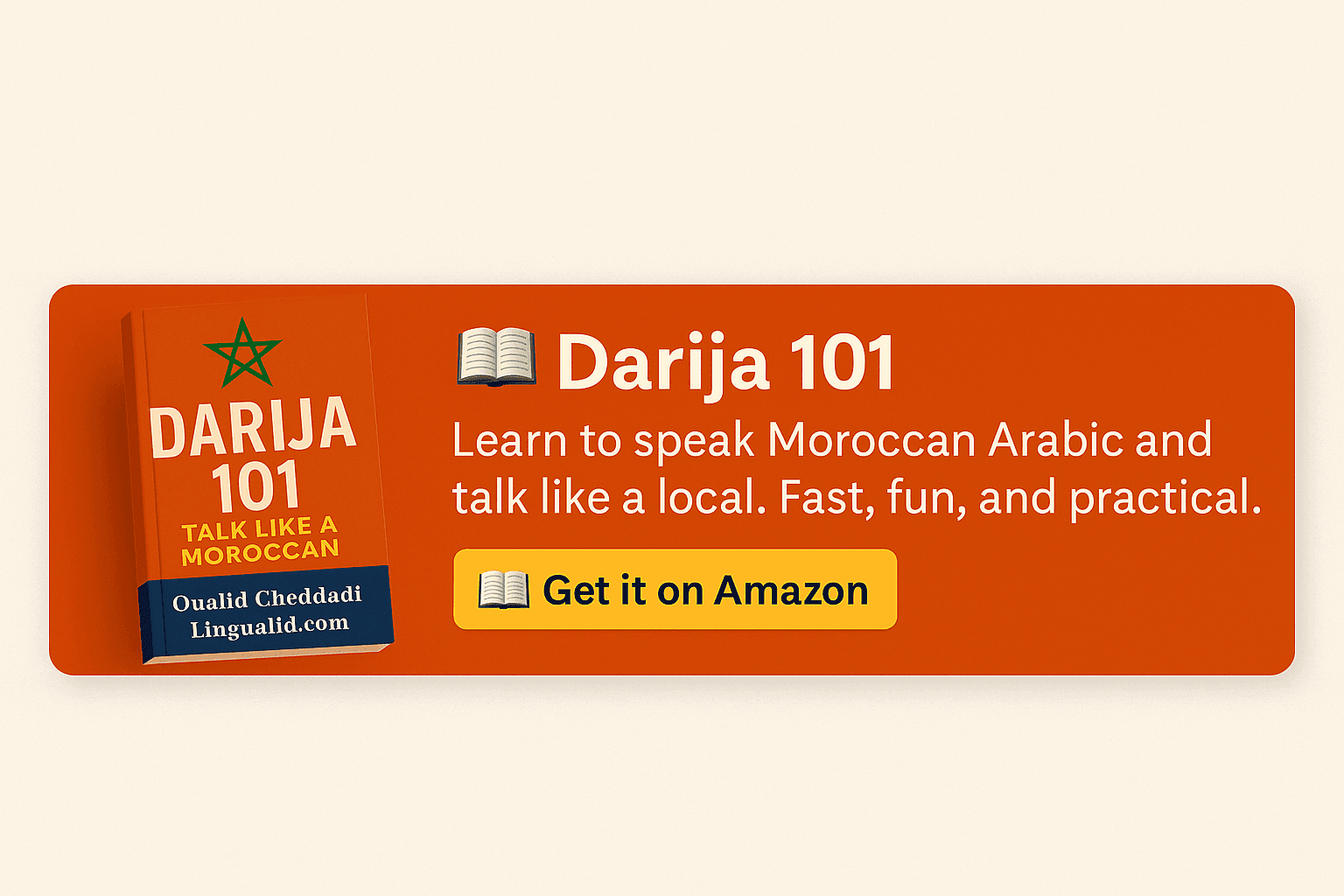
Answer Key
- Male: “Ash kat3awd?”; Female: “Ash kat3awdi?”
- “Sabah al-khayr” or “Sabah nur”
- Male: “Kidayr?”; Female: “Kidayra?”
- Good evening: “Msa lkhir” or “Msa nur”; Good night: “Tsebhi ala khir”
- “Labas, hamdullilah” (I am fine, thank God)
- “Lwlidat bikhir?”: Are the kids good?; “Kolshi mzyan”: Everything is fine.
- “Allah ihafdek” (May God protect you) or “Rabbi ikhallik”
- “Beslama” or “Netshawfo ghedda” (See you tomorrow)
- “Nharek mbruk”: Have a blessed day; “Baraka Allaho fik”: God bless you.
- “Mudda hadi”
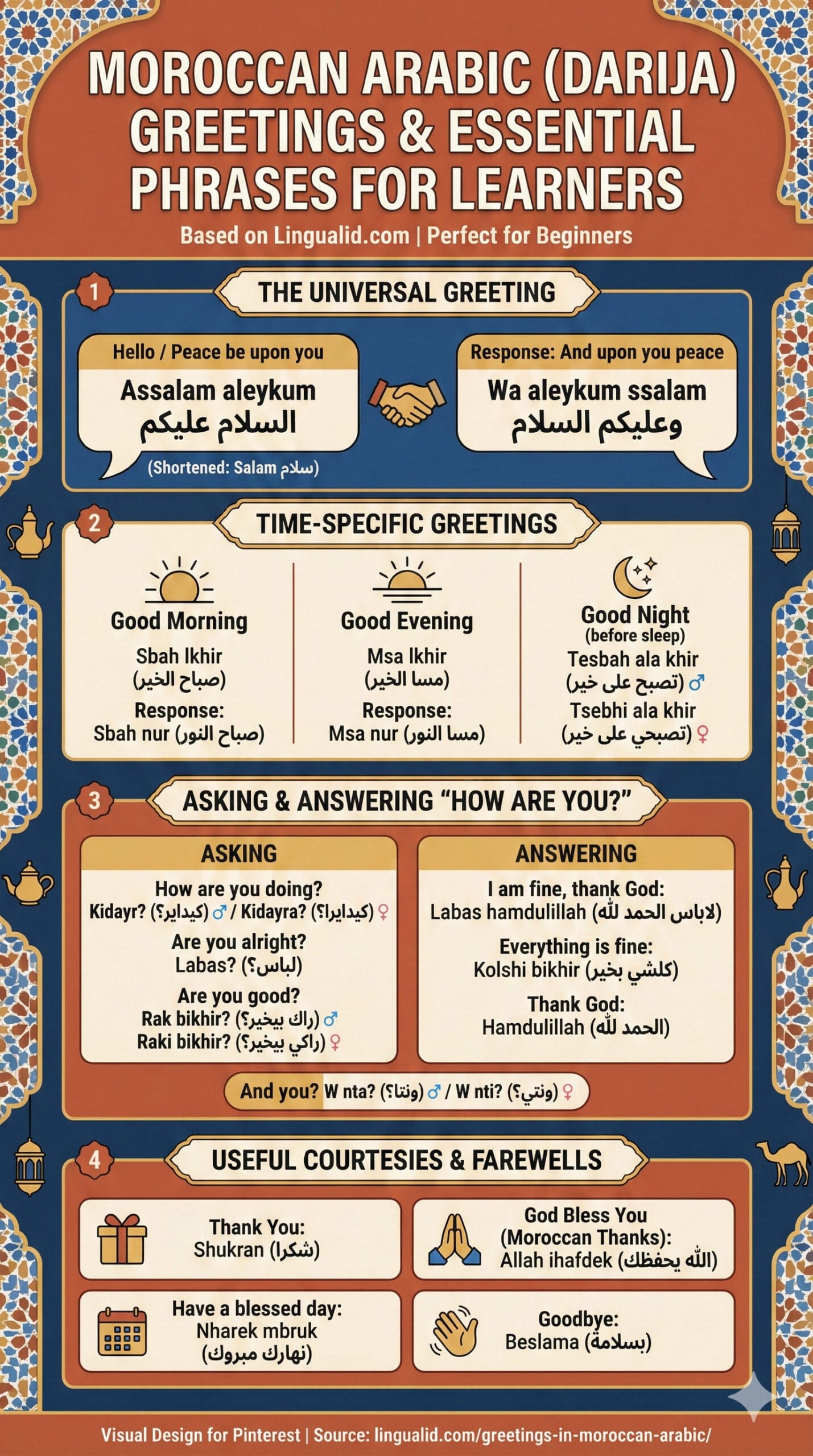
Oualid Cheddadi is the founder of Lingualid, a platform that inspires independent language learners worldwide, regardless of the language they are learning. The name “Lingualid” is derived from the Portuguese word for “language,” “língua,” and the last three letters of Oualid’s name, “Lid.”

